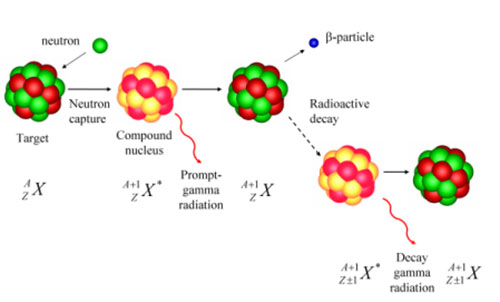A few days ago I received the
latest copy of
Nuclear Physics News International, a quarterly magazine about nuclear physics and its applications, produced on behalf of NuPECC ("Nuclear Physics European Collaboration Committee").
One of the articles in the magazine was "On the Development of Nuclear Physics in Cuba". It gives, as the name suggests, a description of nuclear physics research in Cuba; an academic activity that started after the 1976 construction of a nuclear power plant in concert with support from the USSR. The activity included a lot of applications of nuclear and radiation research, such as production of medical isotopes, industrial profiling, dating of samples, environmental monitoring, as well as more pure physics studies. I had the pleasure of attending one of the conferences organised by the nuclear physics researchers in Cuba some years ago (2005, if I remember correctly), and remember being impressed by the range of applications being worked on by the students.

The article in Nuclear Physics News International was written by Fidel Castro Díaz-Balart, a member of the Academy of Sciences of Cuba, and key mover in the Cuban nuclear research programme. He also happens to be a son of Fidel Castro, erstwhile Cuban leader, which has made him of interest to the news media. Because of this, I was able to read of
his death, alas, which was reported this morning. He had been suffering from depression, and in the end he killed himself. It's tragic to hear of a fellow human's suffering, whoever they are, but as a colleague in the international nuclear physics community, it's a reminder to me (as if I needed it) that mental health problems know no borders of nationality, of rich or poor, famous or unknown. According to the reports (from Granma, the Cuban communist party's newspaper), Dr Castro had been suffering from some time, including spells in hospital. At least, then, he was getting treatment. Another reminder; mental health problems
can be treated.
I was put off reading the article in Nuclear Physics News because of the misaligned printing (see picture). If you want to read it, follow the "latest copy" link in the first line of the blog post.





